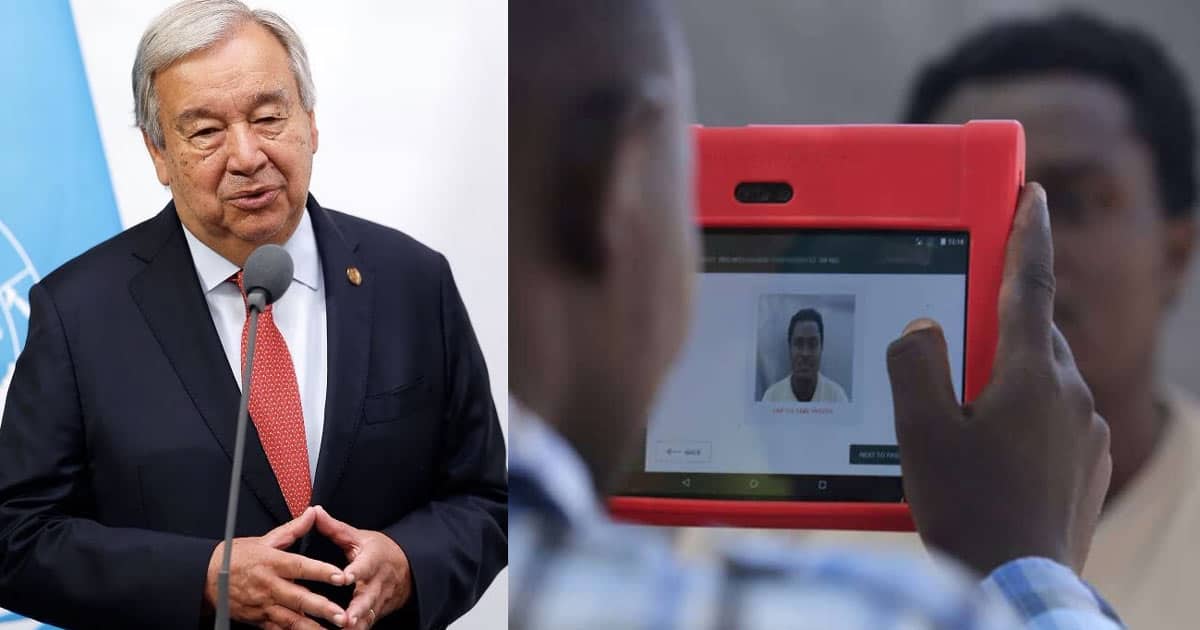The United Nations has been testing a new vaccine-tracking digital ID system in African countries ahead of a mass global rollout of the technology.
The plan, referred to in reports as “a comprehensive initiative,” is now taking place across the continent.
The digital ID is being driven by the UN development agency UNDP, as well as the UN Innovation Network, and even the United Nations Education, Scientific, and Cultural Organization (UNESCO).
This is one of the components of what’s known as the UN’s Global Digital Compact.
The UN is pitching tho initiatives in those countries as a way to supposedly develop better access to services and improve “digital inclusion.”
However, opponents around the world say the schemes create large, centralized surveillance networks.
As such, they are prone to misuse, particularly without stringent safeguards in place.
After the UN agencies previously formalized their initiatives in Kenya, the schemes are now being rolled out in Ethiopia and Eswatini (formerly Swaziland).
These digital ID programs are being launched in cooperation with their governments.
In Ethiopia, the government is organizing ID card registration.
The plan is said to be a large-scale effort that encompasses financial services, healthcare, and education.
In Eswatini, the UNDP, together with the country’s government, carried out a digital readiness assessment.
The goal was to find out if Eswatini’s digital infrastructure in various sectors is capable of implementing digital ID programs at this time.
The UNDP found that Eswatini is not ready to enslave its citizens with digital IDs just yet, however.
The result of the evaluation revealed more money needs to go into developing that infrastructure, as well as training staff.
Both public and private digital services also require further development.
As has previously been done in other African countries, public and private digital services are supposed to take on an increasingly important role in Eswatini.
The UN’s representative in Eswatini is quoted as saying that the results of the assessment program will be used to put together a roadmap to improve digital infrastructure and associated employee skills.
Once this is completed, the government will introduce the UN’s digital IDs.
Eswatini government officials spoke along the same line.
The government confirmed that the country’s Digital Transformation Strategy will benefit from the results of the UN’s assessment, eventually leading to “integrated digital services.”
Various digital ID projects, either discussed or tested elsewhere in the world are typically unpopular, however.
They have been facing low uptake and constant pushback from both privacy and security advocates.
Nevertheless, the UN has been pushing forward with testing digital ID systems in Africa for some time now.
In 2023, the UN began testing its advanced digital ID system in Kenya.
The system uses advanced technology to track the vaccination status of citizens life.
The new method aims to ensure that as soon as a child is born and receives their first vaccine, biometric scanning of four of their fingers takes place.
In addition to fingerprinting babies, their parents’ biometric voice data is also collected.
This data can then be stored in every individual’s digital ID where it can be monitored and updated for the rest of their lives.
READ MORE – Bill Gates: Every Person on Earth Should ‘Prove Their Identity’ with ‘Digital ID’

Our comment section is restricted to members of the Slay News community only.
To join, create a free account HERE.
If you are already a member, log in HERE.